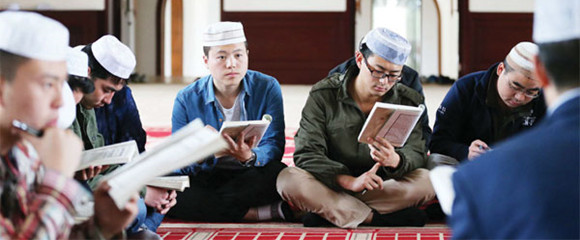China's stance on S.C. Sea arbitration is to defend rather than disobey int'l law
Updated: 2016-05-14 04:53
(Xinhua)
|
|||||||||
Fourth, the basic requirements for launching the compulsory procedure of the UNCLOS have not been satisfied.
According to Article 280, 281, 282, and 283 of the UN Convention, there are several procedural preconditions, namely: the means of their own choice prevails, and such means shall be first resorted to and exhausted, when a dispute concerning the interpretation or application arises, parties shall proceed to an exchange of views.
Given the fact that China and the Philippines have made a clear choice of the means and procedures of settling their disputes, and given that the Philippines has never fulfilled its obligation to have meaningful talks or a full exchange of views with China, the Philippines violated the UNCLOS and abused the procedures under it.
Furthermore, the tribunal in The Hague has taken a biased standing in favor of the Philippines, and has lost its ground of impartiality and justice.
The compulsory settlement procedure provided for in the UNCLOS does not apply to the disputes between China and the Philippines at all. The tribunal set up thereof has no jurisdiction. The Philippines' forceful arbitration initiative and the tribunal's exercise of jurisdiction are willful abuses of the UNCLOS and power, and have been unlawful from the very beginning.
It is clearly seen that this case brought forth by the Philippines is not simply a legal case, it is political provocation under the cloak of international law with some Western powers behind it. The Philippines intends to use the arbitration to deny China's sovereignty in the South China Sea, and to seek support for its illegal occupation of parts of China's Nansha Islands.
As always, China firmly opposes the arbitration case, and will neither participate in the arbitration process nor accept the outcome. China will remain committed to resolving the disputes peacefully through negotiations and consultations.
Related Stories
China refutes Japanese media's South China Sea related reports 2016-05-14 04:16
South China Sea: How we got to this stage 2016-05-13 11:29
Chinese diplomat says South China Sea tribunal has no jurisdiction 2016-05-13 00:32
Next Philippine leader faces new South China Sea horizon 2016-05-11 09:14
China warns US against shows of strength in South China Sea 2016-05-10 20:38
Today's Top News
China urges EU to honor MES status, despite parliamentary vote
Generation of new imams preach peace
Streaming stars
China vows to step up anti-corruption co-op
Chinese entrants in public speaking contest fight hard
Global anti-corruption summit opens in London
Britain raises threat of terror attacks to higher level
Chinese students to benefit from EU rules easing
Hot Topics
Lunar probe , China growth forecasts, Emission rules get tougher, China seen through 'colored lens', International board,
Editor's Picks

|

|

|

|

|

|







